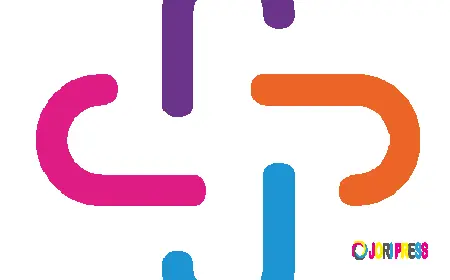The Importance of Credentialing in Medical Billing: A Complete Guide
Discover the importance of credentialing in medical billing for healthcare providers in California. Learn how proper credentialing ensures compliance, streamlines reimbursements, and enhances practice efficiency. Explore expert insights on physician credentialing, billing accuracy, and the role of trusted Medical Billing Services.

The healthcare industry is evolving rapidly, and providers are constantly striving to improve their revenue cycle management while ensuring compliance and patient trust. One crucial process that often goes unnoticed yet plays a vital role in both financial and operational success is credentialing in medical billing. It is the backbone of provider enrollment and payer contracts, making it possible for physicians and practices to receive reimbursement for the services they deliver. In this blog, we will dive into what credentialing entails, why it matters for healthcare providers in California and beyond, and how integrating it with Medical Billing Services can ensure smooth cash flow and stronger practice growth.
What Is Credentialing in Medical Billing?
Credentialing in medical billing is the process of verifying and approving a healthcare provider’s qualifications to ensure they meet the standards set by insurance companies and regulatory bodies. This involves validating licenses, certifications, education, training, and work history. Once approved, providers are authorized to treat patients under specific insurance networks and bill for their services.
Without proper credentialing, healthcare practices cannot bill insurance companies, resulting in claim denials and loss of revenue. In a competitive market like California, this can be especially detrimental, as patients often choose providers based on their insurance network participation.
Why Credentialing Matters for Healthcare Practices
Credentialing is not just a regulatory formality—it is a cornerstone of sustainable revenue cycle management. Its importance can be understood in three key ways:
-
Ensures Timely Payments – Providers can only receive reimbursements from insurance companies if they are credentialed. Without it, even legitimate claims will be rejected.
-
Builds Patient Trust – Patients prefer healthcare providers who are recognized by their insurance networks. Being credentialed boosts credibility and patient satisfaction.
-
Protects Against Legal Risks – Practicing without proper credentialing exposes healthcare providers to compliance risks and potential legal penalties.
For practices in California, where healthcare regulations are complex, credentialing plays a vital role in maintaining compliance while maximizing reimbursements.
Credentialing Challenges in California
While credentialing is essential, it is often a complex and time-consuming process. Providers in California face unique challenges, such as:
-
Lengthy Approval Times – Credentialing with certain insurance carriers can take 90–120 days or longer.
-
Changing Regulations – California has strict healthcare laws, making compliance difficult without expert support.
-
Data Errors – Even small mistakes in credentialing applications can delay approval and disrupt revenue cycles.
-
High Competition – With numerous providers in the state, practices must ensure timely credentialing to remain competitive.
Many healthcare organizations in California turn to experts to handle this process, ensuring accuracy and efficiency.
The Role of Medical Billing Services in Credentialing
In the fifth paragraph, it’s important to highlight how Medical Billing Services connect seamlessly with credentialing efforts. A practice cannot maximize its revenue cycle unless both processes—credentialing and billing—work hand in hand. Medical billing teams not only manage claims but also coordinate with insurance companies to ensure that provider credentialing is updated and compliant.
By outsourcing both credentialing and billing, healthcare practices reduce administrative burdens, prevent claim denials, and secure faster reimbursements. This integrated approach ensures that providers spend less time on paperwork and more time caring for patients.
Linking Credentialing With Revenue Cycle Management
Credentialing is often the first step in revenue cycle management. Without being credentialed, billing cannot even begin. Think of it as opening the door to financial success for your practice. Once providers are credentialed:
-
Claims can be submitted without delays.
-
Payments are processed faster.
-
Denials are minimized due to verified provider information.
In fact, many practices that struggle with revenue loss often find the root cause in incomplete or outdated credentialing.
How California Practices Benefit from Professional Credentialing Services
For healthcare providers in California, professional credentialing support offers several advantages:
-
Time Savings – Providers don’t need to spend hours filling out forms and following up with insurers.
-
Error Reduction – Experts ensure accuracy, preventing costly delays in approval.
-
Faster Enrollment – Credentialing specialists accelerate the process, enabling providers to see patients sooner.
-
Compliance Assurance – Professional services keep up with state-specific regulations and payer requirements.
This is where specialized solutions like credentialing in medical billing become essential for practices looking to streamline operations.
Best Practices for Smooth Credentialing
To make credentialing more efficient, healthcare providers should follow these best practices:
-
Start Early – Apply for credentialing well before hiring a new provider or opening a practice.
-
Keep Documentation Updated – Ensure licenses, certifications, and CVs are current.
-
Monitor Expirations – Stay ahead of license or credential renewals.
-
Leverage Technology – Use credentialing software to automate and track progress.
-
Work With Experts – Partnering with a professional credentialing service reduces errors and delays.
The Future of Credentialing in Medical Billing
As the healthcare industry moves toward value-based care and increased use of telehealth, credentialing will become even more important. Insurance companies are raising their standards, and providers must keep up to remain competitive. Automation and AI-based credentialing solutions are expected to streamline processes further, but human oversight will remain critical.
FAQs About Credentialing in Medical Billing
1. What is credentialing in medical billing?
Credentialing in medical billing is the process of verifying a healthcare provider’s qualifications to allow them to bill insurance companies for services.
2. How long does credentialing take in California?
It typically takes 90–120 days, but timelines can vary depending on the payer and the accuracy of submitted information.
3. Can a provider bill insurance without credentialing?
No, claims will be denied unless the provider is properly credentialed with the payer network.
4. Why is credentialing important for revenue cycle management?
Credentialing ensures providers are recognized by payers, which enables timely claim approvals and steady revenue flow.
5. Should providers outsource credentialing?
Yes, outsourcing helps save time, ensures compliance, and reduces the risk of errors or delays in the process.
What's Your Reaction?
 Like
0
Like
0
 Dislike
0
Dislike
0
 Love
0
Love
0
 Funny
0
Funny
0
 Angry
0
Angry
0
 Sad
0
Sad
0
 Wow
0
Wow
0


















































